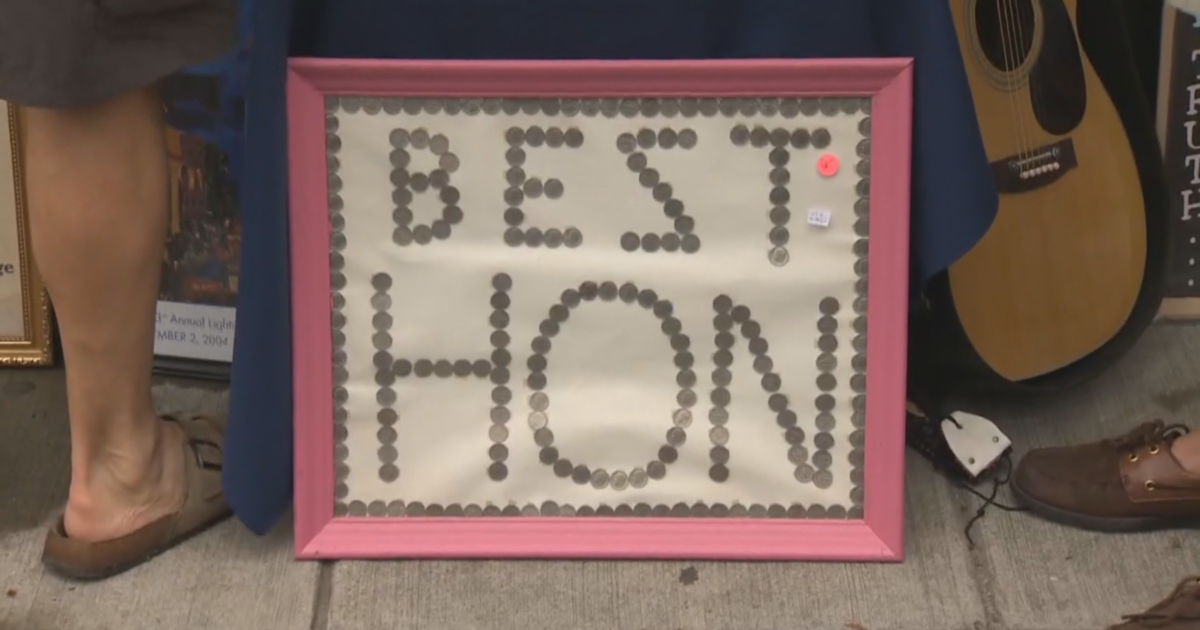Horses Inspire New Lives For Md. Offenders
PRISCILLA LOEBENBERG
Carroll County Times
SYKESVILLE, Md. (AP) -- Nelly Madden spoke softly as he ran his hands over the glossy hide of retired thoroughbred Liang's Dancer at Second Chances Farm.
"Grooming isn't just to clean, but to check for injuries or new bites or scratches," said Madden as he picked and inspected each hoof.
Madden went through a list of the care he provides to Dancer and the other horses at the farm. Seven days a week, he checks vitals and behavior for problems, cleans the stalls and grooms, feeds and provides basic first aid, stress relief and therapy for the racehorses. He demonstrated a massage technique, exerting firm but gentle pressure until Dancer signaled his relaxation.
Madden is not a professional groom -- yet. He is an inmate at the nearby Central Maryland Correctional Facility.
Madden said he was incarcerated in 2003 for a crime of passion: second-degree attempted murder. You might expect Madden, or any other convict soon up for parole, to talk about how they have changed. But you might not expect 30-year parole supervisor Judi Coyne, long inured to such claims, to champion him. She has faith in Madden and others completing the Second Chances program.
"It's a perfect program," said Coyne, who became program coordinator for Second Chances Farm in April after retiring from her job with the Department of Public Safety.
In her previous job, she said, she was an "enforcer of rules." She tried to help offenders by placing them in a situation away from triggers that could make them re-offend. She said the work she does now is something else entirely.
"This -- this is changing the character of a human being," Coyne said as she spread her arms wide toward the barn full of horses and men. "I'm moved by them every day I go to work. It's heartwarming."
The program was developed by the Thoroughbred Retirement Foundation and is run in cooperation with 10 correctional facilities across the country. The horses in the program are those too injured for riding, but are relatively healthy otherwise. If the horses were not rescued and placed into this or some other foster program, they would likely be sent to the slaughterhouse. Two of the horses at Second Chances in Sykesville come from well-known champions. Dancer is out of Northern Dancer and Judge Luci is a descendant of Secretariat.
The state pays Coyne's salary and the salary of one guard. All other farm expenses are taken care of through donations.
"These majestic animals were bred for greatness," Coyne said. "They deserve a second career."
She believes the animals are building on their greatness by helping the men in the program.
"They all deserve a second chance," said Coyne about the men and animals. "It's a win-win."
She said horses are soulful creatures and they reflect the attitude of the people around them. She said the inmates have to learn to be patient, consistent, reliable and dependable just to stay in the program.
About 50 percent of the inmates accepted to the program, which includes a six-month groom certification curriculum, don't graduate. Since the program began in 2009, 15 men have graduated.
Madden described Dancer as "spunky." He said many of the horses will bite, kick or spook easily if they are approached by someone who is agitated.
"It's not fair to the horse to make it suffer for something we are going through," he said.
Working with the horses, Madden said, has taught him not to react to situations that would have angered him or frustrated him in the past. Coming to understand the horse, and see himself the way the horse does, has given him a new outlook. He has also learned patience.
"You can never make a 1,000-pound animal do something it doesn't want to do," he said.
Madden, who is from Baltimore, said he wants to apply for a job as a groom at Pimlico or Laurel Park after he is released. Coyne said he has a shot. She expects Madden to receive his groom certification after he tests next month, but he will still have to be licensed. Although his criminal record could influence his ability to get licensed, each case is reviewed on its own merits.
The program includes six retired thoroughbreds and six potential grooms. One horse, Reds, is known as the troublemaker and a biter. The newer grooms don't usually look forward to their first rotation with the spirited animal.
"Different horses have different needs," inmate Mike Atkins said.
He said Reds is just particular. He requires the grooms to do exactly what they are supposed to do and is a good teacher for those in the program.
Atkins said if he walks too far ahead of Reds instead of at the appropriate place to the side, the horse will give him a nibble.
"He keeps me in check," Atkins said. "He's a great horse if you understand him."
Atkins said he grew up on the streets of New York City and never held a job before he was incarcerated for assault in 1999. He had never been around horses either, but he said he loved "The Black Stallion" as a child.
"This program taught me everything I know," Atkins said. "Before I came to the program, I had no skills. I had nothing. Now, I know what it is to love and care for something."
Atkins said he wants to work with horses in any way he can. He said he would do almost any job that would allow him to be around the animals he has come to love.
Coyne said, unlike with her previous job, she doesn't ask the inmates about their past.
"The horses don't know their past," she said. "But they know who they are now. The men have to work hard to earn the horses' trust and it shows."
Coyne said even if the inmates completing her program don't find work as grooms, "they will be better people from having worked with the horses and Maryland will be better for it."
(Copyright 2013 by The Associated Press. All Rights Reserved.)



